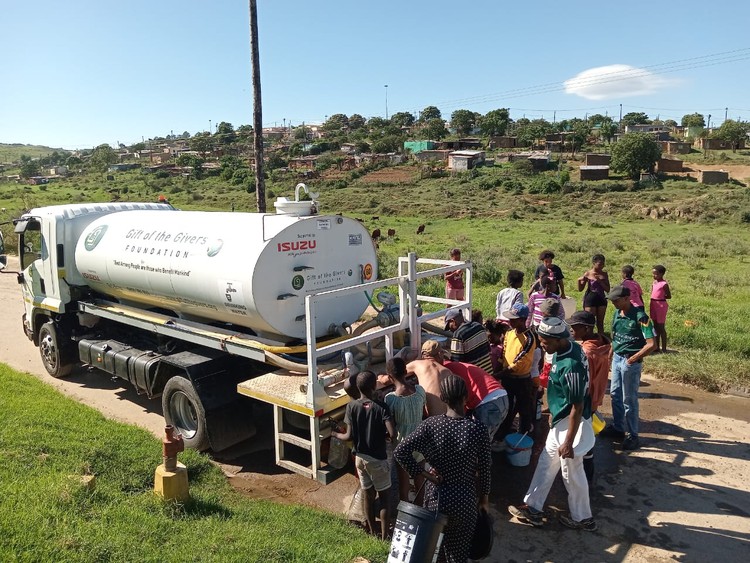By Sandile Dudu Saki
Makana Municipality made a promise at a meeting held at the Council Chambers on the 30th of May that by the 30th of June, there would be no more water outages. The promise was made in light of the hiring of the Amatola Water Board as an intervention to the Water Crisis by the Department of Water and Sanitation. According to sources, the tripartite agreement involving the Department of Water and Sanitation, Makana Municipality, and Amatola Water Board was to allow the latter to fix the bulk water supply crisis affecting the city.

However, since then, many residents have experienced long periods of water outages. The crisis is escalated by numerous issues that the municipality is turning a blind eye to, such as the unequal and uneven supply of water in different areas of the city, lack of response to water leaks, the city’s geo-political economics, and the municipality’s alleged malfeasance.
Numerous Integrated Development Planning (IDP) meetings were held on different dates to assist the municipality in the identification of the different needs of the disparate communities. The water crisis emerged in almost all those meetings as an issue that needed primary consideration.
The water crisis does not only affect Makana municipality. Even the Nelson Mandela Bay Metro (NMB) was hugely impacted by a water crisis in 2022 to the extent that a ‘Day Zero’, or total water shutdown was predicted. Communities and activists established a Water Crisis Committee as a result. At the time, just one water leak in the Northern Areas of Gqeberha resulted in the loss of 1.5 million litres of treated water per month. There were hundreds of other water leaks in the city at the time. There are certain similarities in terms of the NMB and Makana municipalities’ responses to water crises. There seems to be a lack of urgency in the Makana municipality’s attitude toward the issue, such that water leaks take months to be fixed. This, on its own, contributes to enormous water wastage.

According to Peter Sturrock, a retired Makhanda civil engineer, there are many leaks in Makhanda’s water pipe network, accounting for a loss of about 40% of the water supply – this is millions of litres every day. Pump breakdowns also play a significant role in water outages since there is no spare or reserve water pumping capacity at either water treatment works. This has dire consequences on hygiene and sanitation, posing health hazards and discomfort because of the lack of water for household use. This can be solved through maintenance or replacement of broken pumps, replacement of old asbestos pipes with PVC pipes, and isolating valves to be maintained. That and the training of municipal staff in maintenance programmes and procedures as well as a rapid response to water leaks when they are reported, would help the water crisis situation considerably.

Mziwoxolo Same of the NMB Water Crisis Committee told Grocott’s Mail that during the water crisis in NMB, many township residents had to travel long distances to fetch water just to be able to live. Councillors often moved away from their respective constituencies and resettled in the affluent areas, leaving people grappling with serious water crisis issues on their own.
Tony Martel, a PhD candidate at Nelson Mandela University and also an activist in the NMB Water Crisis Committee, told Grocott’s Mail that both Makana and Nelson Mandela Bay had experienced a time when the municipalities supplied residents with contaminated water. In NMB, this contaminated water was treated with cancer-causing chemicals, Martel alleged.
Martel added that “water racism” was a very real aspect of the water crisis in NMB. This was where affluent, majority-white communities who could pay for water were given better service than Black working-class townships, whose residents were forced to line up at water trucks daily to collect just a bucket or two of water. This is similar to the situation in Makana.
Same summed up the water crisis in Nelson Mandela Bay with words that could apply in Makana. “We are worried that the municipal officials think this [water crisis]is a joke. It is being used to score political points. Because they tend to neglect their mandates, that affects us. Water is a necessity and a human right,” he said.


